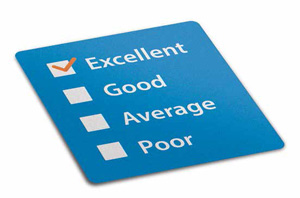
Quality Assurance: What is the Competency and Why do We Feel Challenged?
Dental Hygiene Focus: The Challenge of Continuing Competencies & Portfolios
by Beth Ryerse, RDH DipDH
Oh Canada! Volume 1 Issue 4
It is good to feel ‘on top of your game’ isn’t it?
When your new, sharp curettes make debridement a breeze, or the lecture you just provided is met with accolades, or the research you have undertaken all falls into place or whatever your dental hygiene practice involves – that feeling of knowing that you have used your knowledge and skills to the fullest extent is exhilarating.
But what happens when a patient asks a question you struggle to answer or there is calculus remaining that you just cannot remove or there is a medical history issue that makes you anxious? Consider the difference in that experience. Competency is the ability to do something well or effectively. Continuing competency means recognizing that the knowledge and skill that we graduated with from dental hygiene school
provides baseline ability and we are by no means finished learning.
In our Dental Hygiene Standards of Practice, one of the main categories is Professionalism. One of the domains within that section is Responsibility. “Competencies related to Responsibility include the ability to: Adhere to current jurisdictional legislation, regulations, codes of ethics, practice standards, guidelines, and policies relevant to the profession and practice setting.”
If there were no Quality Assurance programs to monitor the profession, how could the regulatory bodies be sure that their registrants were providing safe, effective service? There are many different types of QA programs; professional portfolio, exam, required hours of continuing education, etc. What they all have in common is the objective of providing proof that the public is protected.
The profession of dental hygiene falls under the Regulated Health Professions Act and the Dental Hygiene Act which establishes that a Quality Assurance program is mandatory for all registrants. Every regulated health professional has some sort of QA program. Dental hygienists do not have the most difficult, nor the most time consuming or expensive requirements. Neither do we have the easiest, quickest or least costly.
It is not optional. So….if we can change our mindset and accept that this is part of the price to be paid in order to call ourselves professionals, it is less of a burden and can actually be enjoyable. We are fortunate that we are allowed to choose what we would like to learn based on our own self-assessment and not dictated to regarding mandatory
learning.
QA programs are not meant to be a punishment. A regulatory body is not the Gestapo or the police. No one is going to come marching into your hygiene operatory and demand that you hand over your diploma so that they can tear it into tiny pieces. Unfortunately, this is the scenario that many dental hygienists believe to be a potential outcome if they ‘fall short’ on their continuing competency requirements.
I know that in Ontario this is particularly true. The professional portfolio has the reputation of being horrendously difficult and monumentally time consuming. As a Portfolio Workshop presenter, I have witnessed the angst, the anger and even the tears as fellow dental hygienists share their sentiments regarding the system.
It is my experience that if we look at the requirements as a whole, it may seem as though it is an incredibly daunting task. However, if it is broken down into manageable sections, it is relatively straightforward to comply with requirements. We all know the saying ‘Anyone can eat an elephant, one bite at a time.’ I am not sure WHY you would want to eat an elephant but nevertheless, if you wanted to, you could. We can choose to look at our requirements the same way.
“As health professionals, you are responsible for making decisions that affect the health outcomes of the clients you serve. As a standard of practice, decisions, judgements and interventions planned by dental hygienists are based on current research and theory that is pertinent to their area of practice.” (Milestones, 2008)
If that was your child in the chair how would you feel if the person treating him/her had never had to upgrade since they graduated? I like to know that the RDH who is caring for my parents, children and grandchildren is current in their knowledge and competent in their skills. A quality assurance program is simply a way of verifying that.
References
1. CDHA. Dental Hygienists Code of Ethics, revised June 2012, Ottawa, 2012
2. CDHA. Entry-To-Practice Competencies and Standards for Canadian Dental Hygienists, January 2010
3. CDHO. Registrants’ Handbook, Updated August 2010
4. CDHO, Milestones, November 2008
Read this article offline later as a PDF compliments of CDHA
